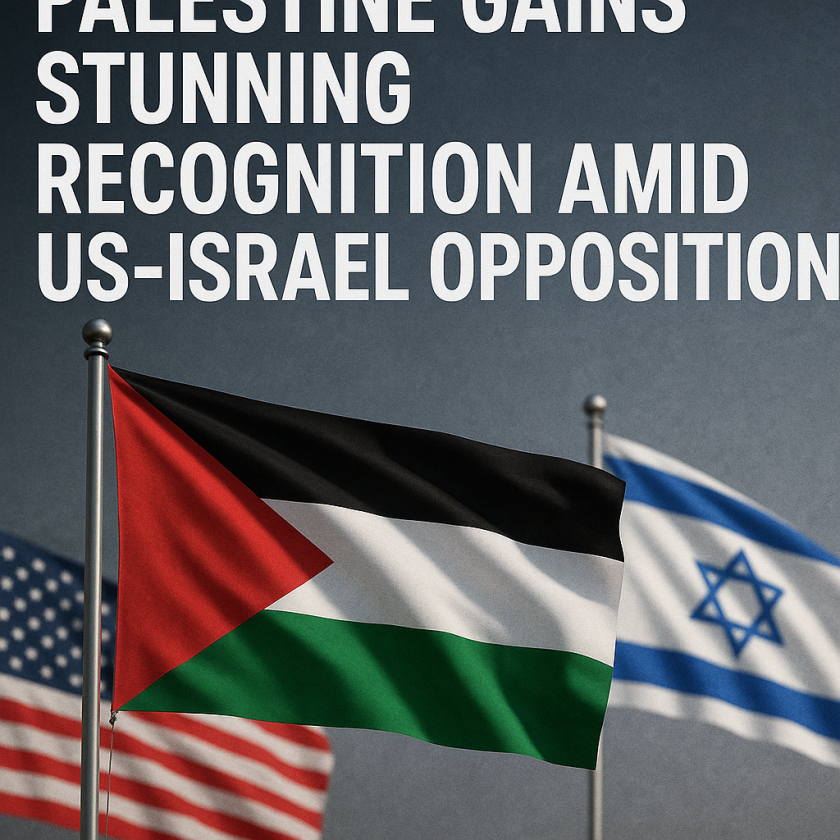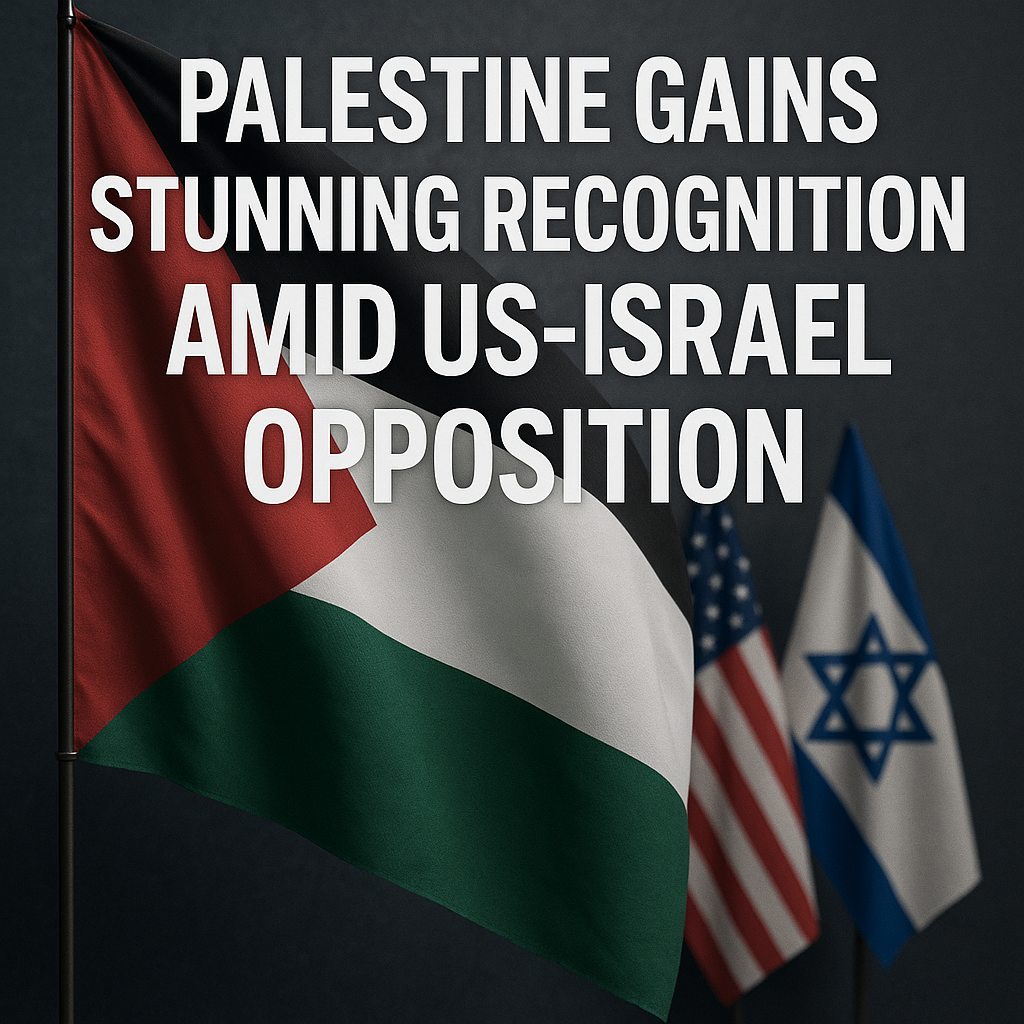Palestine Gains Stunning Recognition Amid US-Israel Opposition
Palestine Gains Stunning Recognition Amid US-Israel Opposition
Palestine’s recent strides towards international recognition have ignited significant discourse, particularly in the context of opposition from both the United States and Israel. The situation highlights the complexities surrounding recognition and diplomacy in a region fraught with historical tensions.
A New Wave of Recognition

The UN’s recent decision to grant Palestine a non-member observer state status has been labeled as a “stunning recognition” of Palestinian sovereignty. This decision underscores the growing support for Palestine within an increasingly multipolar world, diverging from the traditional alignment with US foreign policy. According to Al Jazeera, many member states perceive this recognition as an essential step towards a just peace in the region, emphasizing the need for dialogue rather than armed conflict.
A Divided Reception
While many nations celebrated this recognition, Israel and the US have been vocally critical. Israel’s Prime Minister has reiterated concerns that such recognition could embolden extremist factions within Palestinian communities, potentially jeopardizing peace efforts. The Wall Street Journal echoed similar sentiments, insisting that this shift risks undermining the delicate balance previously maintained in US-led negotiations.
However, voices within Palestine expressed hope that this recognition could catalyze genuine negotiations. They argue that international acknowledgment may empower moderate forces, enabling a more robust dialogue about the future of the region. The divergent views underscore the complexity of the situation, illustrating how perceptions of legitimacy can vary significantly across geopolitical lines.
Geopolitical Implications of Recognition
The recent recognition of Palestine at the UN has stirred discussions about the broader geopolitical implications. Countries such as Brazil and Turkey have publicly supported Palestinian statehood, signaling a shift towards a more sympathetic global viewpoint. With the growing number of nations backing Palestine, the balance of power seems to be slightly tipping, leading some analysts to suggest that the US-Israel alliance may face increasing challenges.
The Role of Global Actors
China has also entered the conversation, urging a more comprehensive dialogue solution to the Israeli-Palestinian conflict. This emerging multipolarity, where countries previously considered peripheral now have a voice, raises questions about the future of US dominance in international diplomacy. The US’s pushback against the UN’s recognition may, in fact, further alienate a significant portion of its allies who feel pressured to choose sides in this increasingly polarized environment.
Furthermore, the European Union’s position remains nuanced, as it aims to fulfill its role as a mediator while simultaneously grappling with its respective member states’ varying opinions on the matter. The EU’s insistence on a two-state solution echoes its longstanding commitment to dialogue but also highlights its difficulties in crafting a unified foreign policy approach in light of this recognition.
Navigating the Impasse
While recognition is a significant milestone, it does not immediately translate into a practical resolution of the Israeli-Palestinian conflict. Critics note that the lack of an actionable peace framework, coupled with the deep-seated mistrust between both parties, means that this recognition is more symbolic than substantive.
Nevertheless, opportunities remain for engagement and dialogue. As noted by various analysts, fostering trust through grassroots initiatives and community engagement could pave the way for a more hopeful future. The role of civil society, especially in Palestine and among sympathetic Israeli groups, becomes crucial. Joint efforts aimed at reconciliation, economic cooperation, and mutual understanding might build the foundations necessary for long-term peace.
Conclusion: A Path Forward?
Palestine’s newfound recognition marks a significant chapter in the ongoing saga of Middle Eastern politics—one punctuated by complexities and contradictions. The ramifications of this recognition extend far beyond the immediate context, reshaping international relations and challenging the long-standing US-Israel stance.
While debates swirl around the effectiveness and implications of this recognition, the broader sentiment leans towards the possibility of real dialogue and peace. The road ahead remains filled with uncertainty, but dialogue—coupled with persistent international support—could yet offer a glimmer of hope for a resolution to one of the world’s most intractable conflicts.




































